Search
Search Results
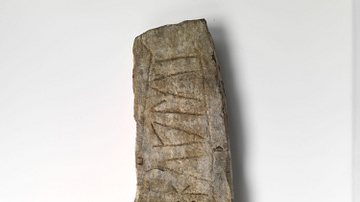
Image
Oldest Writing in Switzerland
Copy of funerary stela with inscription, Vira-Gambarogno, Ticino. 5th century BC. The name of the deceased reads from bottom to top: teromui kalui.
Find our more: The Oldest Writing in Switzerland.
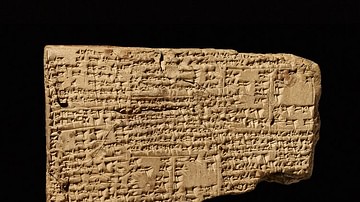
Image
Babylonian Cuneiform Lexical List
Late Babylonian lexical list of personal names on a clay tablet.
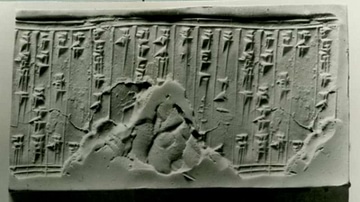
Image
Assyrian Cylinder Seal Inscribed in Cuneiform Script
Though not necessarily an Israelite object, this object was uncovered around Samaria and dates to the Iron Age II (8th century BCE). It is 3.9 cm long (The Israel Museum, Jerusalem). The image is significant because it is evidence—among other...
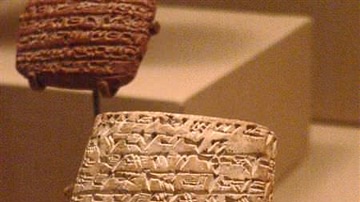
Image
Cuneiform Tablet, Assyria
A clay tablet with cuneiform from an Assyrian trading post, c. 1875-1840 BCE. (Los Angeles County Museum of Art, L.A.).
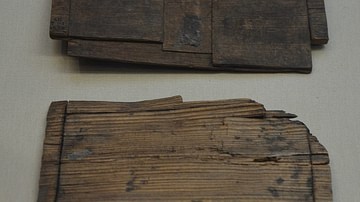
Image
Wooden Writing-tablet
Wooden writing-tablet, 1st-2nd century CE, from Londinium (Roman London). British Museum, London
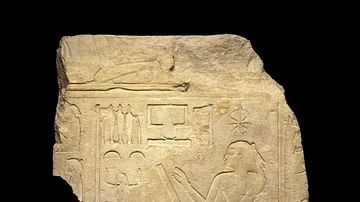
Image
Seshat, Goddess of Writing
A limestone relief slab depicting Seshat, the Egyptian goddess of writing. ca. 1919-1875 BCE. (Brooklyn Museum, USA).
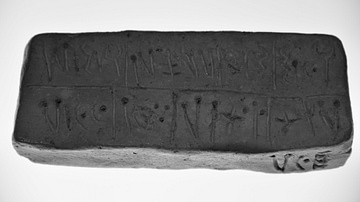
Image
Mysterious Writing on a Tablet from Al-Balqa
This clay tablet is one of 12 tablets which were found near the temple of Tell Deir Alla in 1964. The inscriptions on the surface of the tablets are still unknown and this mysterious writing cannot be deciphered. Before 1200 BCE. From Al-Balqa...

Image
Writing the Declaration of Independence
A painting by Jean Leon Gerome Ferris showing Thomas Jefferson (right), Benjamin Franklin (left), and John Adams drafting the U.S. Declaration of Independence in 1776. (Virginia Historical Society, Library of Congress)
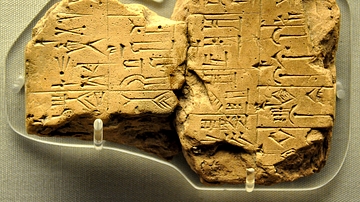
Image
Cuneiform Archaic Signs
Since very ancient inscriptions would often come to light during building and restoration work, Mesopotamian scribes possessed some understanding of the pictographic origin of their script. The text on this clay tablet is an attempt to provide...
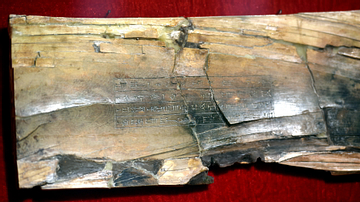
Image
Ivory Writing-Board from Nimrud
This is the outer cover of the ivory writing-boards (6 in number) incised with four lines of Assyrian cuneiform text, giving the title of the astrological script which was a compilation of omens ordered by Neo-Assyrian king Sargon II (reigned...